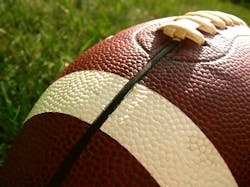It's not everyday that I get to stream sports radio at my desk and chalk it up to "research." But that's how big the Richie Incognito/Jonathan Martin bullying saga has become.
This thing has some legs to it.
Kudos to ESPN 850's Aaron Goldhammer for moderating a good discussion on the story. Goldhammer pointed out that he was bullied as a kid, and admitted that his response to the bullying was to bully other kids.
"It's a vicious cycle," Goldhammer said.
This is a fascinating story from several angles. It reminds us that the NFL is a workplace, and that football players have the same workplace rights, responsibilities and protections as the rest of us (except most of us aren't allowed to tackle our co-workers).
That means, among other things, that they're entitled to a work environment that's free of bullying, harassment and racial discrimination.
Professionalism
It's hard to imagine bullying or harassment being an issue in a profession dominated by 300-pound men who can bench-press a Frigidaire – and given the fact that these men are paid vast sums of money to bully and harass their opponents on the gridiron.
But even though these men play a game that many of us also enjoy playing in our backyards (without compensation), they are professionals. And the NFL is a business.
Like any business, the NFL has a culture. The Miami Dolphins saga exposes a business culture in which hazing is an accepted practice in many locker rooms. The examples often cited are rookies footing the bill for massive dinner tabs, carrying veteran players' shoulder pads and getting their heads shaved.
There's a fine line between hazing, bullying and harassment, though, and if the allegations against Richie Incognito are true, he crossed it. And his actions were unacceptable.
If the end game in football is to win a championship, I'm not exactly sure how any form of hazing – no matter how seemingly innocent – gets a team closer to its goal. Some might argue that it fosters unity, or makes guys tougher, or somehow enriches what clearly is a dysfunctional apprenticeship process in professional football. But I don't see it.
Listening to the sports-talk shows this morning, I expected to hear a lot of rationalization and macho bluster centering on the argument that these are tough guys playing a brutal sport, and that Martin should've just manned up and punched Incognito.
Fortunately, that wasn't the case.
A guest on the "Mike and Mike" show – I can't remember who – talked about being on a Super Bowl team that passed up Incognito in the draft because of his reputation. The guest described the locker room on this team as "all business," and pointed to several of his former teammates who are model citizens.
Here's what I got from that: Nice guys can finish first, and teams and players can be successful without selling their souls to the ghosts of stupid traditions. Win or lose, there's a right way to play the game, and a right way to conduct yourself as a professional – and as a human being.
Culture Change
But the larger issue, of course, is this: "There's no place for bullying in our society," as Goldhammer put it.
In the world of environmental, health and safety, we talk about culture a lot. The culture in the NFL – and perhaps in other professional sports – needs to change. With the Miami Dolphins story capturing mainstream attention, now is as good a time as any to break the cycle of bullying and hazing in football, Goldhammer said.
How does that happen? Just as it is with safety, changing the culture in football has to start at the top. And the NFL needs to adopt a no-tolerance policy toward bullying and hazing.
Because of its high-profile status, that could go a long way toward tackling the issue for other athletes.
"Why do they haze in college? Because they haze in the NFL," Goldhammer said. "Why do they haze in high school? Because they haze in college."
It's time to break the cycle, and go back to focusing on what's really important for many Americans (including me) this time of year: football.
About the Author
Josh Cable Blogger
Senior Editor
Josh Cable is senior editor of EHS Today, a Penton publication. In his nearly 15 years as a journalist, he has covered a wide range of topics, including banking and finance, occupational safety and health, government purchasing and U.S. manufacturing. As a former editorial-staff member of Penton’s IndustryWeek and Occupational Hazards, he has toured dozens of manufacturing facilities, establishing himself as a subject-matter expert in world-class production, quality and safety systems.
